8 Retail Stocks That Are Doing It Right
Retailing has been forced into a transformation over the past decade.


Profit and prosper with the best of Kiplinger's advice on investing, taxes, retirement, personal finance and much more. Delivered daily. Enter your email in the box and click Sign Me Up.
You are now subscribed
Your newsletter sign-up was successful
Want to add more newsletters?

Delivered daily
Kiplinger Today
Profit and prosper with the best of Kiplinger's advice on investing, taxes, retirement, personal finance and much more delivered daily. Smart money moves start here.

Sent five days a week
Kiplinger A Step Ahead
Get practical help to make better financial decisions in your everyday life, from spending to savings on top deals.

Delivered daily
Kiplinger Closing Bell
Get today's biggest financial and investing headlines delivered to your inbox every day the U.S. stock market is open.

Sent twice a week
Kiplinger Adviser Intel
Financial pros across the country share best practices and fresh tactics to preserve and grow your wealth.

Delivered weekly
Kiplinger Tax Tips
Trim your federal and state tax bills with practical tax-planning and tax-cutting strategies.

Sent twice a week
Kiplinger Retirement Tips
Your twice-a-week guide to planning and enjoying a financially secure and richly rewarding retirement

Sent bimonthly.
Kiplinger Adviser Angle
Insights for advisers, wealth managers and other financial professionals.

Sent twice a week
Kiplinger Investing Weekly
Your twice-a-week roundup of promising stocks, funds, companies and industries you should consider, ones you should avoid, and why.

Sent weekly for six weeks
Kiplinger Invest for Retirement
Your step-by-step six-part series on how to invest for retirement, from devising a successful strategy to exactly which investments to choose.
Retailing has been forced into a transformation over the past decade. And some retail stocks, once dogged by fear of those changes, have become attractive buys once again.
The rise of Amazon.com (AMZN) and internet commerce has thinned the herd and continue to pick off stragglers. But several of the chains that continue to survive are premium or otherwise sought-out destinations that demand your attention.
Some retailers are no longer just retailers, but manufacturers. They have increasing control over both their supply chains and what consumers pay. Others don't just sell goods, but lifestyles, experiences, journeys. Many are not just conduits for other brands – they're brands themselves.
Read on as we evaluate eight retail stocks to buy as they rewrite the playbook. These companies look attractive for a number of reasons, including returns on their investments in e-commerce, siphoned business from failed competitors, successful efforts to strengthen their brands and more.
Data is as of Feb. 9. Dividend yields are calculated by annualizing the most recent payout and dividing by the share price.
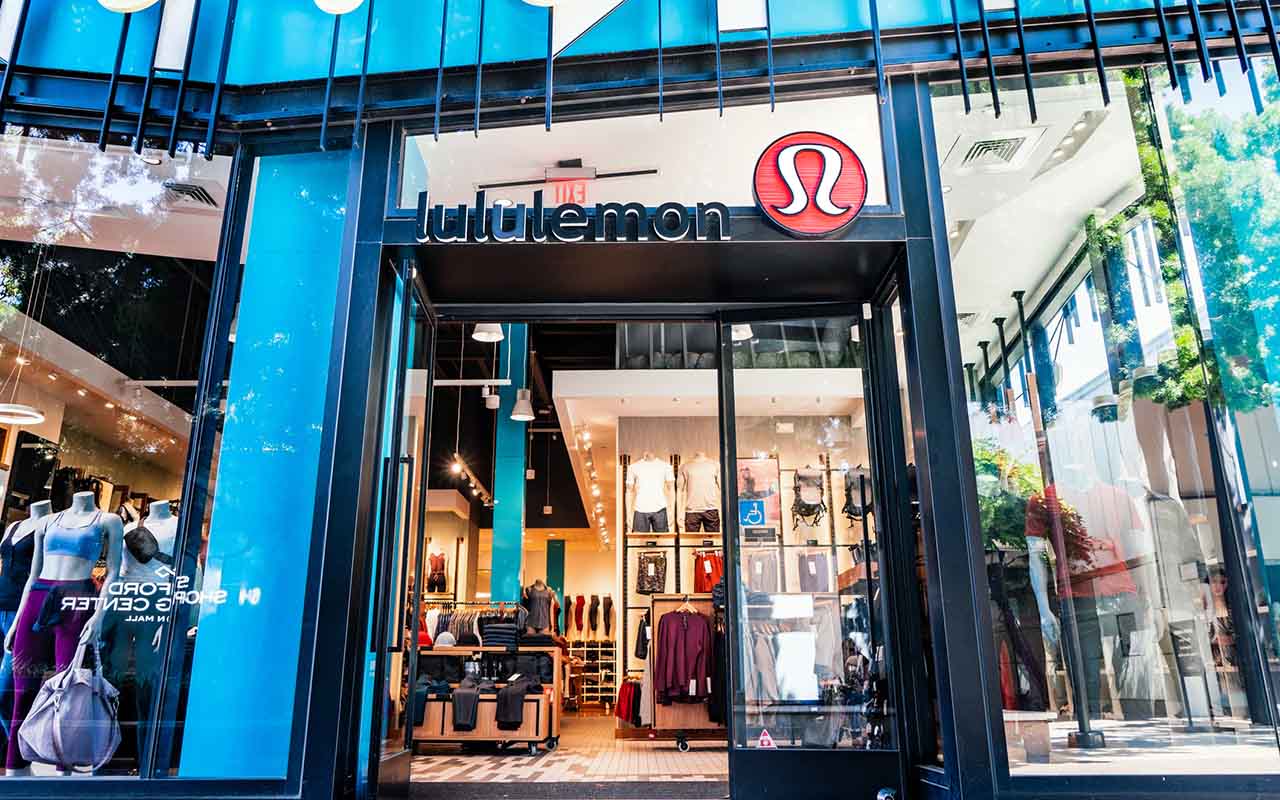
Lululemon Athletica
- Market value: $31.7 billion
- Dividend yield: N/A
- Lululemon Athletica (LULU, $243.51) was founded in 1998 by Chip Wilson to make yoga apparel in Vancouver, British Columbia. It has since overcome scandals that forced out both Wilson and eventually his successor, Laurent Potdevin, to become the most valuable brand in active wear for women. (And over the past two years, it has successfully entered the men's apparel market.)
Lululemon has been one of the best retail stocks to buy over the past three years, and it's the poster child for everything retailers need to do right today. For one, LULU isn't just selling apparel – it's selling a lifestyle. Lululemon stores host yoga classes and running clubs. They also sell ancillary products focused on a healthy, balanced lifestyle. Scott Crowe – chief investment strategist with CenterSquare, a real estate analysis firm in Plymouth Meeting, Pennsylvania – notes that the stores include exercise rooms, meditation areas and even cafes that serve smoothies and salads.
The business of selling clothes is going just fine, too. LULU has a profitable model in which it designs its own outfits, controls their production in Asia, then sells them exclusively through its own stores and website, typically at full price.
Margaret Reid, senior vice president and senior portfolio manager with The Private Bank at Union Bank in San Francisco, calls Lululemon "one of the few apparel companies with pricing power." She says it benefits from "the growing health consciousness of consumers globally, as well as willingness to pay more for high-quality and innovative product."
LULU shares have soared by more than 63% over the past year, at the detriment of its valuation, which sits at 43 times future earnings estimates. But the company continues to raise that forward-looking bar.
"The company's new product lines, like streetwear and outerwear, are also helping boost sales," says Daniel Milan, managing partner of Cornerstone Financial Services in Southfield, Michigan. "And management hopes to double men's wear sales by the end of 2023." Lululemon's five-year vision also includes doubling its digital sales and quadrupling its international revenues.
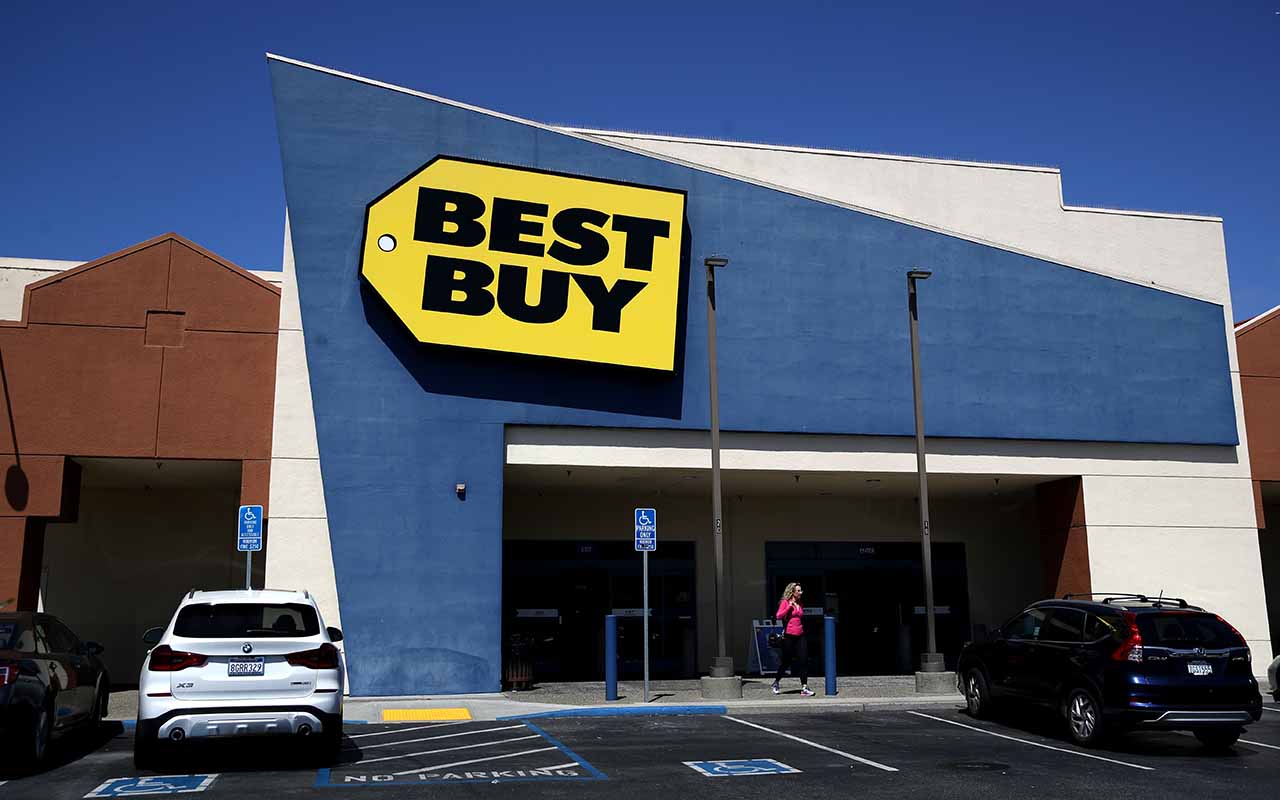
Best Buy
- Market value: $22.5 billion
- Dividend yield: 2.3%
- Best Buy (BBY, $87.02) is among the retailers that have found a way to prosper by adding service to its product mix.
Geek Squad wasn't a Best Buy invention – the company bought the service provider for just $3 million in 2019. However, BBY has turned Geek Squad, which provides service both in stores and at customer sites, into a real differentiator from big-box stores such as Walmart (WMT). Extended warranty service contracts provide cash flow, too.
While it was once the ultimate example of a "showrooming" victim – in which people visit a physical store to view the merchandise, but buy it online (often at Amazon) – Best Buy has given people enough reason to actually stick around to make their purchases. Ryan Giannotto, director of research at ETF provider GraniteShares, praises Best Buy management and says few companies have been able to "recapture the customer value chain from disruptive challengers."
For the current fiscal year ended earlier this month, the company is expected to report just 1.4% revenue growth but an 11.5% pop in profits. Earnings expansion will be more modest in fiscal 2021, at just 5%, but come on slightly better sales growth of 1.7%. That said, BBY shares trade at just 14 times forward-looking estimates for profits, well cheaper than the S&P 500's 19 P/E multiple. BBY yields more, too, at 2.3% versus 1.8% for the index.
It's far from exciting, but BBY represents a solid buy-and-hold play among retail stocks.
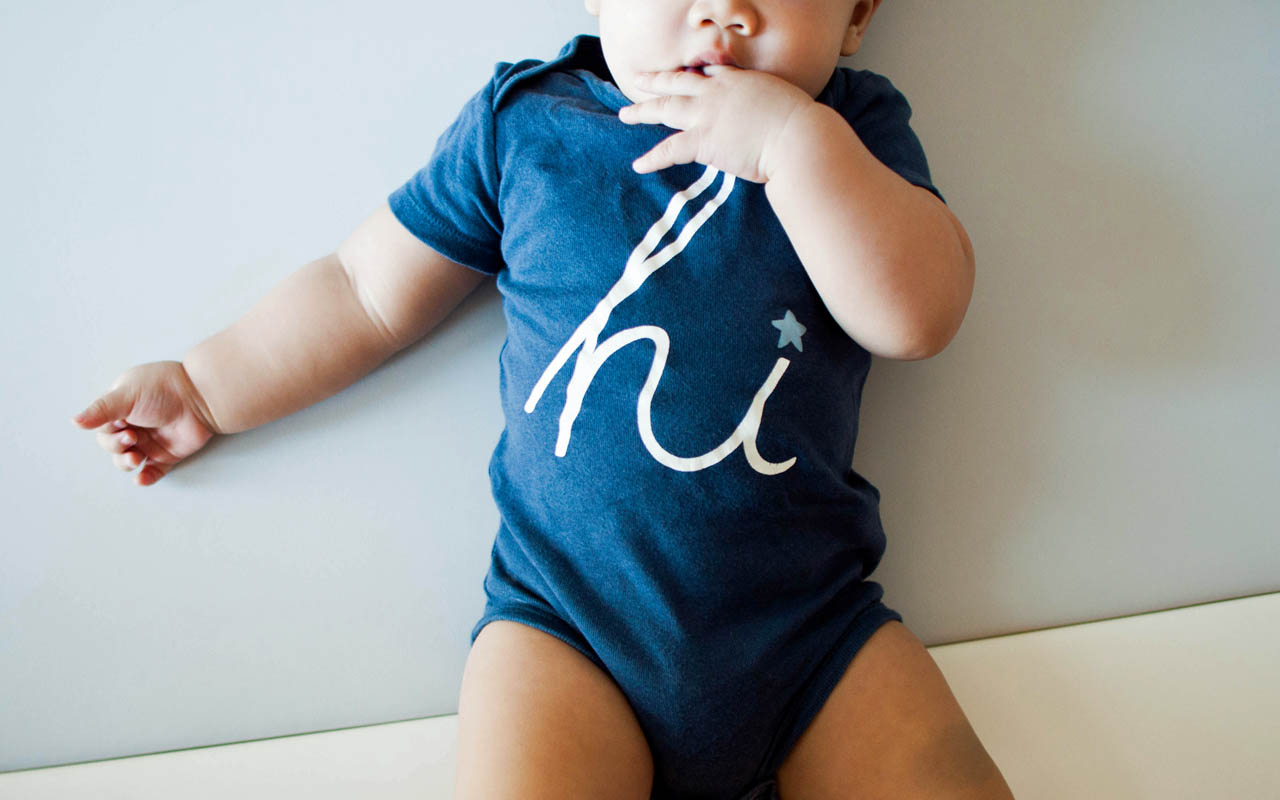
Carter's
- Market value: $4.7 billion
- Dividend yield: 1.9%
- Carter's (CRI, $106.53) has been following the new retail rules before they ever existed.
Carter's, a children's apparel specialist, was founded 155 years ago and manufactures goods under its namesake label, as well as under the OshKosh B'gosh label, which it also owns. It sells these goods, and third-party items, in 1,000-plus stores across the U.S., Canada and Mexico, as well as online. You can also find Carter's products at Walmart, Target and Amazon under the Child of Mine, Just One You and Simple Joys brands, respectively.
Carter's has boasted uninterrupted growth on the top line for years, though earnings haven't been as consistent. Its third-quarter profits were off considerably from the year-ago period; however, that included a large non-cash impairment charge related to its Skip Hop name, which suffered from the closing of top customer Toys "R" Us. Backing that out, earnings grew 16% year-over-year.
The company's e-commerce operations are well thought-out, with the website used to unload clearance items, introduce new merchandise and point shoppers to its stores.
Carter's is expected to report its 2019 full-year results in late February. Analysts are looking for sales of $3.5 billion (+1.6% year-over-year) and profits of $6.56 per share (+4.3%). 2020 should look even better, with the pros projecting revenue growth of 3.1% and profit growth of 7.5%.
CRI boasts a dividend, too. It's a small yield for new money, at 1.9%, but that payout has exploded by 127% since 2015. If the company continues to keep the pedal down on the dividend – and it has the room, paying just 33% of its profits out as dividends currently – investors should enjoy higher yields on their original cost over time.
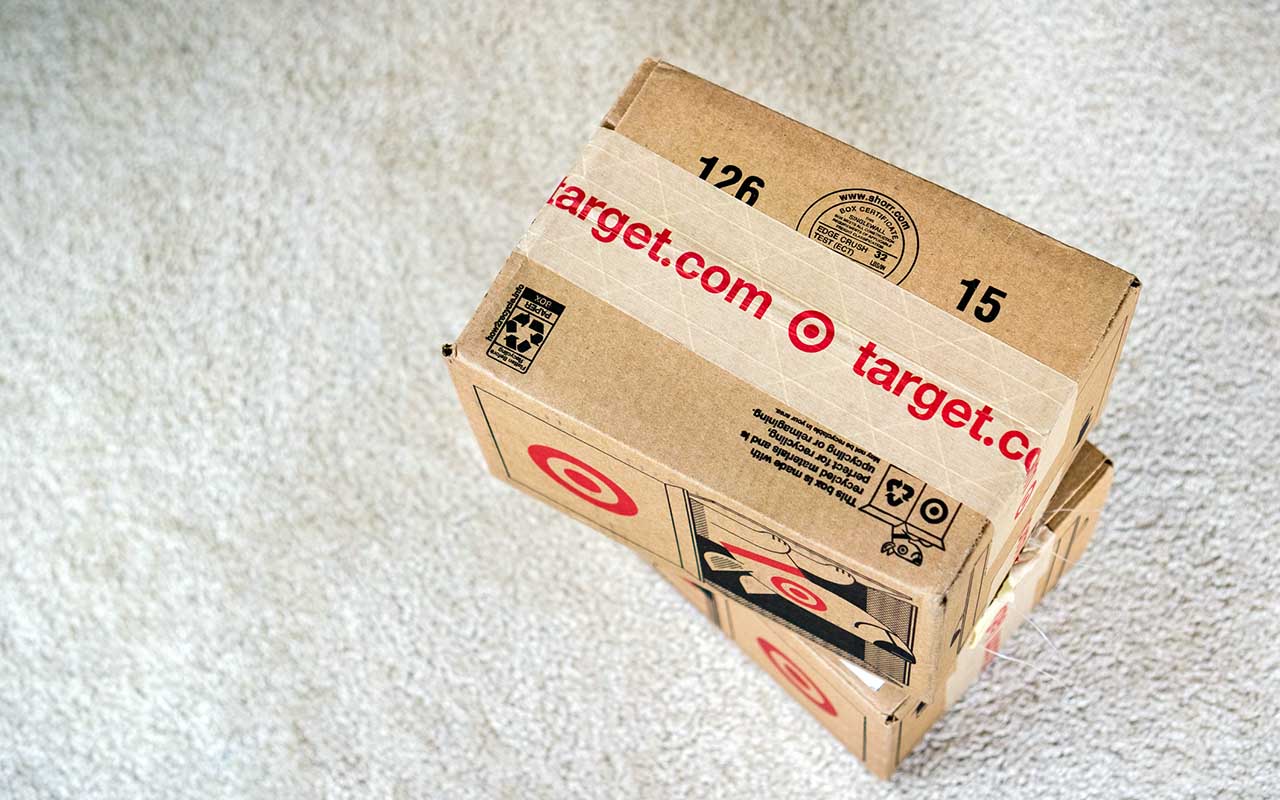
Target
- Market value: $58.6 billion
- Dividend yield: 2.3%
- Target (TGT, $115.61) has demonstrated how selling unique merchandise can revitalize a consumer stock.
Brian Cornell, who became CEO in 2014 after a data breach effectively forced the resignation of Gregg Steinhafel, has transformed Target from "Walmart lite" to a destination with powerful store brands such as Cat & Jack kids' clothes. The story continues in 2020 with All in Motion, an activewear brand that launched in early January. Of 41 private-label brands in the company's portfolio, 19 are in clothing and accessories.
GraniteShares' Giannotto holds TGT shares and notes the company's "simply ruthless improvements to efficiency." Cornell has invested heavily in the company's e-commerce efforts, and "it's as cost-competitive to sell online as in the store – a claim even Walmart cannot match," Giannotto says.
"Target is one of the few physical retailers that has evolved with the structural shift of customers shopping online or via mobile devices," Union Bank's Reid says. "The 'branded retail' strategy has "enabled Target to have more control of the products in their stores and drive higher profits" in what remains a challenging retail environment.
TGT's 94% gain in 2019 made it one of the best retail stocks on the market. However, that red-hot run hit a wall in January, when Target reported lackluster holiday sales; shares are now off 10% in 2020.
It might be a dip worth buying. Despite its holiday issues, Target maintained its fourth-quarter earnings guidance, with Cornell citing "the durability of our business model." Analysts, meanwhile, are looking for 3.5% revenue growth and 8.3% profit growth in the coming year.

Etsy
- Market value: $5.9 billion
- Dividend yield: N/A
- Etsy (ETSY, $49.64) has taken over the niche once occupied by eBay (EBAY) as the home of unique, artistic and quirky gifts.
Etsy itself doesn't produce merchandise. Instead, it acts as an online outlet for small producers. Artists, craftsmen – all the people you might see at a local arts fair – offer their work via Etsy's simple interface.
While ETSY controls its niche, there is some concern over the size of that niche. The rise of Shopify (SHOP) – a software company whose offerings let people sell from their own sites rather than through a third party – also is a potential threat to ETSY down the road, though there's little hard evidence that's currently the case. Amazon is putting pressure on Etsy, too, with its Amazon Handmade section; Etsy recently rankled sellers by encouraging them to offer free shipping on orders larger than $35, and featuring less prominently those who didn't.
The company's sales are still growing at a rapid clip, but the rate has been decelerating over the past few quarters, from about 47% in Q4 2018 to 31.6% in Q3 2019. That, and earnings that merely matched Wall Street estimates over the past two quarters, have led to significant selloffs.
But the selloff, as well as more realistic expectations going forward, have brought more bullish analysts into the fold. Fifteen of 18 analysts tracked by S&P Global Market Intelligence rate the stock a Buy, including Citi's Nicholas Jones, who wrote in November that the retail stock's dip was a "compelling buying opportunity."
Moreover, things are looking up on the earnings front. While sales are expected to slow from 35% growth in 2019 to roughly 26% in 2020, analysts expect Etsy's profit growth to improve from an 8% clip this year to more than 18% over the next 12 months.
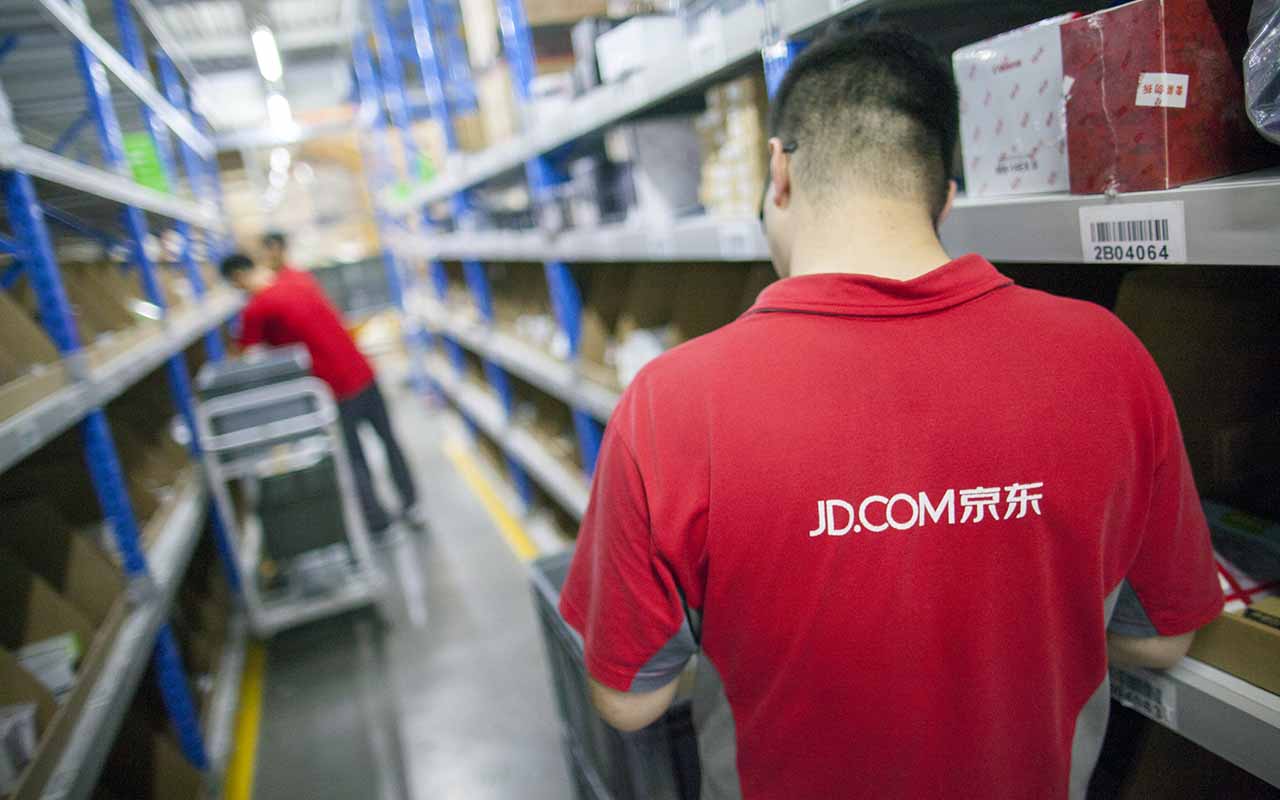
JD.com
- Market value: $58.4 billion
- Dividend yield: N/A
You've likely heard about Alibaba Group (BABA), the largest e-commerce operator in China. But it's possible you haven't heard of JD.com (JD, $39.99), and if not, that's a shame. Because there's plenty of opportunity for the No. 2 player in a country as populous, and fast-growing, as China. Especially considering that experts consider some of its technology and infrastructure superior to that of Alibaba's.
Indeed, the company pioneered the use of drones for delivering packages in remote areas, which remains one of its focuses. In fact, it has brought this technology beyond China, including to Indonesia. The drones even assure fast delivery of high-priced specialty cargo used by restaurants, such as hairy crabs in Shanghai – with "fresh crab insurance."
JD.com's shares are up roughly 67% over the past 52 weeks. Yes, the outbreak of the coronavirus in China messed with the stock's trajectory – but only temporarily. Shares have recovered and are already up nearly 14% in the young year. The logic? People trying to avoid going out will be much more likely to use online delivery services to avoid as much human contact as possible.
A strong 2019 did stretch the stock's valuation, says Thibault Kuten, CEO at Finance Friday, who is nonetheless long JD shares. But the company's trying to earn it: It's expected to report its first full-year profit on a GAAP (Generally Accepted Accounting Principles) basis when it announces fourth-quarter results in late February. Its adjusted profits are estimated to more than triple. Expectations going forward are promising, too, with analysts projecting 19% revenue growth and a 36% thicker profit in 2020.
One headwind to watch for this retail stock in the year ahead: year-over-year comparisons. 2019 was an excellent year for JD.com, which will make it all the more difficult for 2020 results to wow investors.

RH
- Market value: $4.1 billion
- Dividend yield: N/A
- RH (RH, $215.96) is better known by its retail chain, Restoration Hardware. The company officially changed its name to RH at the start of 2017 after it bought Waterworks, a luxury bath-and-kitchen brand.
The acquisition illustrates one trend among successful retail stocks: stores selling unique, higher-end products that customers can't get anywhere else.
RH shares aren't dirt-cheap, but they're not terribly expensive either, trading at less than 17 times future earnings expectations. That's good enough for Nick Giacoumakis, founder and president of New England Investment & Retirement Group in North Andover, Massachusetts, who says the stock is worth the price.
"Innovation and unique theme-based store designs are attracting an increasing flow of traffic," he says, adding, "RH raised revenue and profit guidance four separate times in 2019 and expects to increase store openings and new collections in 2020."
Robert R. Johnson, a professor of finance at Creighton University in Omaha, and co-author of Strategic Value Investing, calls RH "a great choice for exposure in the retailing space," pointing out its "reasonable" price/earnings-to-growth (PEG) ratio. Any reading over one is considered overpriced, so RH's PEG ratio of 1.6 technically makes it expensive, but it's still cheaper than the S&P 500's 1.7 at the moment.
And RH's growth is considerable. Analysts are expecting a boffo result for the year that just ended in January 2020. They project revenue growth of about 7%, but earnings of $11.54 per share – up 58% year-over-year. Sales should be a little better in 2021, up nearly 8%, and fueling profit growth of 18.6%, which would make most brick-and-mortar retailers green with envy.
Another vote of confidence comes from Warren Buffett, whose Berkshire Hathaway (BRK.B) bought 1.2 million shares of RH stock during the third quarter of 2019.
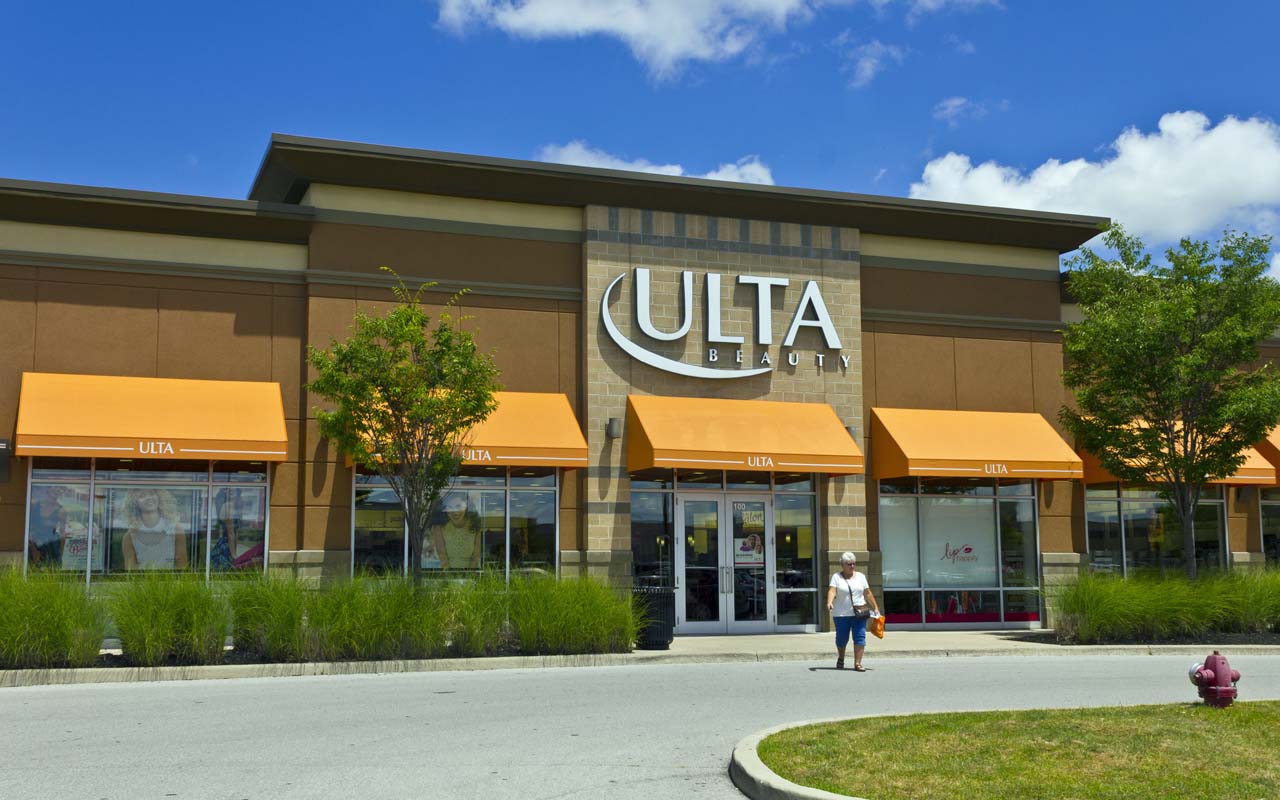
Ulta Beauty
- Market value: $16.9 billion
- Dividend yield: N/A
- Ulta Beauty (ULTA, $295.96) has transformed the makeup business, combining the full service of a salon with a huge inventory of products. This lets it profit from giving people what works, demonstrating its use and helping them maintain the look at home – all from one location.
Ulta Beauty operates 1,241 retail stores across the U.S., and sells goods via its website, which it has smartly peppered with tutorials and social media content. Mary Dillon, a veteran of McDonald's (MCD) and Pepsico (PEP), has proven the worth of gender diversity in the C-suite, with ULTA shares roughly tripling since she took the reins in June 2013.
This has been a more volatile stock of late, however. Shares were crushed by 30% in late August amid an earnings miss and a warning that certain makeup trends were losing momentum. And the retail stock isn't cheap despite its woes, trading at more than 22 times future estimates.
GraniteShares' Giannotto still believes in the company's story, which "illustrates how defensible, high-margin brands can be cultivated in a digital era."
"A sustainably scaled, and indeed accelerating, revenue base demonstrates (that a) digital challenge does not automatically imply margin compression for physical retailers," he adds.
Cornerstone's Milan believes the stock is setting up for big gains in 2020. "They have continued to gain market share and drive foot traffic as consumer trends show a pivot from makeup to skincare," he says. Ulta's doing that with "key, exclusive brands which give it an edge over the competition."
That stock's comeback could start as early as March, when Ulta is expected to report 3% earnings growth to $3.73 per share.
"Ulta was one of the top retailers in terms of foot traffic for the holiday period, with Black Friday traffic running 300% above baseline, a 9% increase from the previous year," Milan says. "Ulta has been gaining share from department stores and continues to open new stores, selling everything from drugstore lines to prestige brands."
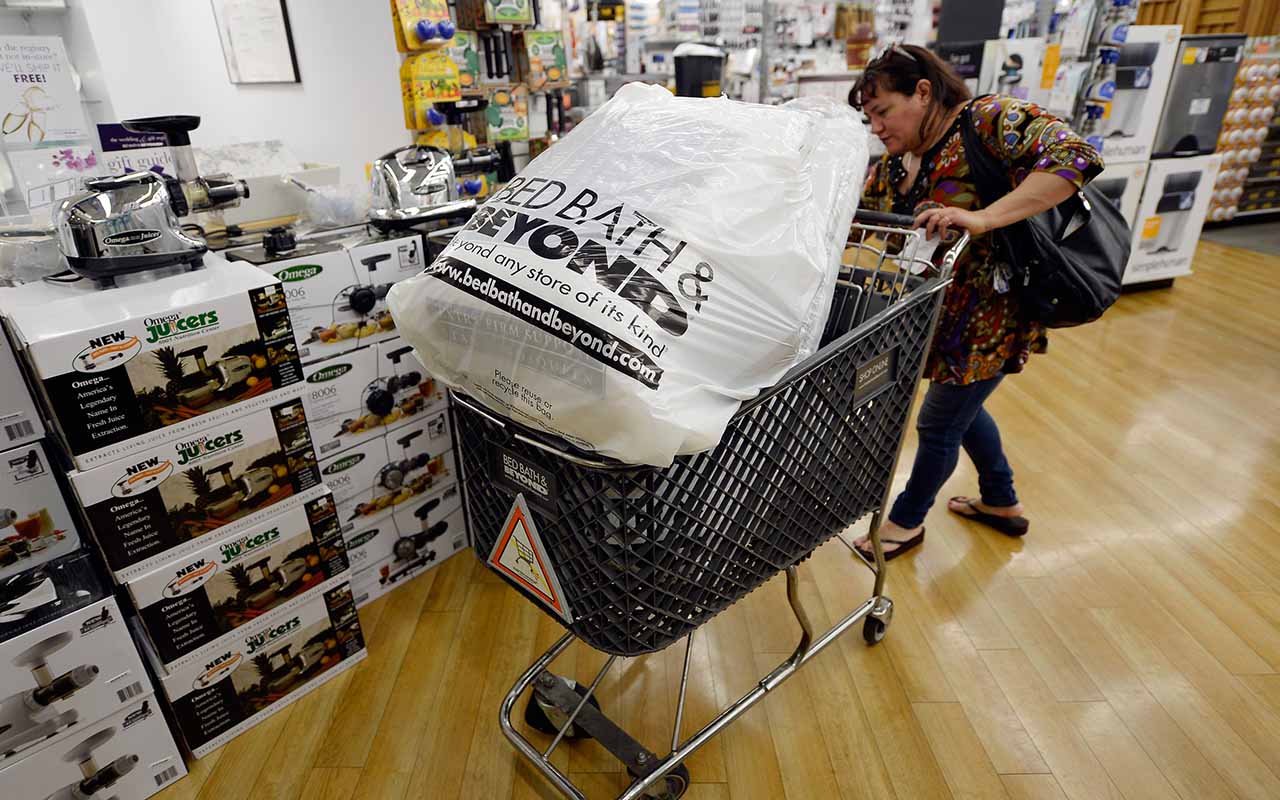
Bed Bath & Beyond
- Market value: $1.9 billion
- Dividend yield: 4.4%
- Bed Bath & Beyond (BBBY, $15.31) is by far the most speculative name on this list of retail stocks to buy. It's a consumer company that most Americans know well, but one that has been flying through a great deal of turbulence.
Under founders Warren Eisenberg and Leonard Feinstein, Bed Bath & Beyond was a typical "category killer" – a big-box retailer located in strip malls or the outparcels of larger malls. It bought branded merchandise in bulk from manufacturers, selling at prices that specialty stores could not match.
The model broke down over the past five years, and so did BBBY shares. The stock was priced near $80 per share in early 2015. Today, it goes for about $15.
Bed Bath took decisive action last year. Following the direction of an investor group led by activist hedge fund Legion Partners, BBBY recruited Target's chief merchandising officer, Mark Tritton, as its new CEO in October. Tritton got Wall Street's attention by firing most of his executive team ahead of Christmas, and in January 2020, he completed a sale-and-leaseback of half the company's real estate, generating roughly $250 million in crucial cash.
The sale-leaseback move won praise from Alexi Panagiotakopoulos, co-founder of Fundamental Income in Phoenix, Arizona, which sponsors the NETLease Corporate Real Estate ETF (NETL). "By choosing to lease the real estate they sold, Bed Bath and Beyond has done the right thing for shareholders by unlocking capital that can be more efficiently put to work in much-needed growth initiatives," he says.
December-quarter results – a 38-cent-per-share loss on revenues that declined 9% to $2.8 billion – will be among the last under the new model. New strategic plans are expected within the next few months.
For now, BBBY shares trade for a low 10 times forward-looking earnings estimates. If Tritton does for Bed Bath what he did for Target – including creating dozens of new store brands with better quality and brand messaging than the products they competed with – that could look like quite the bargain.
Just heed the warning of New England Investment and Retirement Group's Giacoumakis: "It will not be a portfolio holding for the weak of heart in the near and medium term."
Profit and prosper with the best of Kiplinger's advice on investing, taxes, retirement, personal finance and much more. Delivered daily. Enter your email in the box and click Sign Me Up.

-
 Ask the Tax Editor: Federal Income Tax Deductions
Ask the Tax Editor: Federal Income Tax DeductionsAsk the Editor In this week's Ask the Editor Q&A, Joy Taylor answers questions on federal income tax deductions
-
 States With No-Fault Car Insurance Laws (and How No-Fault Car Insurance Works)
States With No-Fault Car Insurance Laws (and How No-Fault Car Insurance Works)A breakdown of the confusing rules around no-fault car insurance in every state where it exists.
-
 7 Frugal Habits to Keep Even When You're Rich
7 Frugal Habits to Keep Even When You're RichSome frugal habits are worth it, no matter what tax bracket you're in.
-
 Tech Sells Off While Trump Stirs the Fed: Stock Market Today
Tech Sells Off While Trump Stirs the Fed: Stock Market TodayWe've reached another important part of earnings season, though markets remain captivated by the president, the Fed, and interest rate policy.
-
 Stocks Struggle Ahead of Busy Fed Week: Stock Market Today
Stocks Struggle Ahead of Busy Fed Week: Stock Market TodayThe minutes from the July Fed meeting will be released Wednesday, while Chair Powell will deliver a key speech at Jackson Hole on Friday.
-
 Stock Market Today: Dow Falls 817 Points as Bond Yields Rise
Stock Market Today: Dow Falls 817 Points as Bond Yields RiseFinancial markets are once again focused on Washington, D.C., but taxes, not tariffs, are driving recent price action.
-
 Stock Market Today: Dow Drops 670 Points on Trade War Effect
Stock Market Today: Dow Drops 670 Points on Trade War EffectA prodigious rally by the battered leader of the AI revolution typified an increasingly volatile picture for investors, traders and speculators.
-
 Stock Market Today: Markets Count Down to Tariff Day
Stock Market Today: Markets Count Down to Tariff DayInvestors, traders and speculators stand by for updates from Washington, D.C., on new terms of global trade.
-
 The 24 Cheapest Places To Retire in the US
The 24 Cheapest Places To Retire in the USWhen you're trying to balance a fixed income with an enjoyable retirement, the cost of living is a crucial factor to consider. Is your city the best?
-
 Stock Market Today: Stocks Close Mixed Amid War Angst, Nvidia Anxiety
Stock Market Today: Stocks Close Mixed Amid War Angst, Nvidia AnxietyMarkets went into risk-off mode amid rising geopolitical tensions and high anxiety ahead of bellwether Nvidia's earnings report.
-
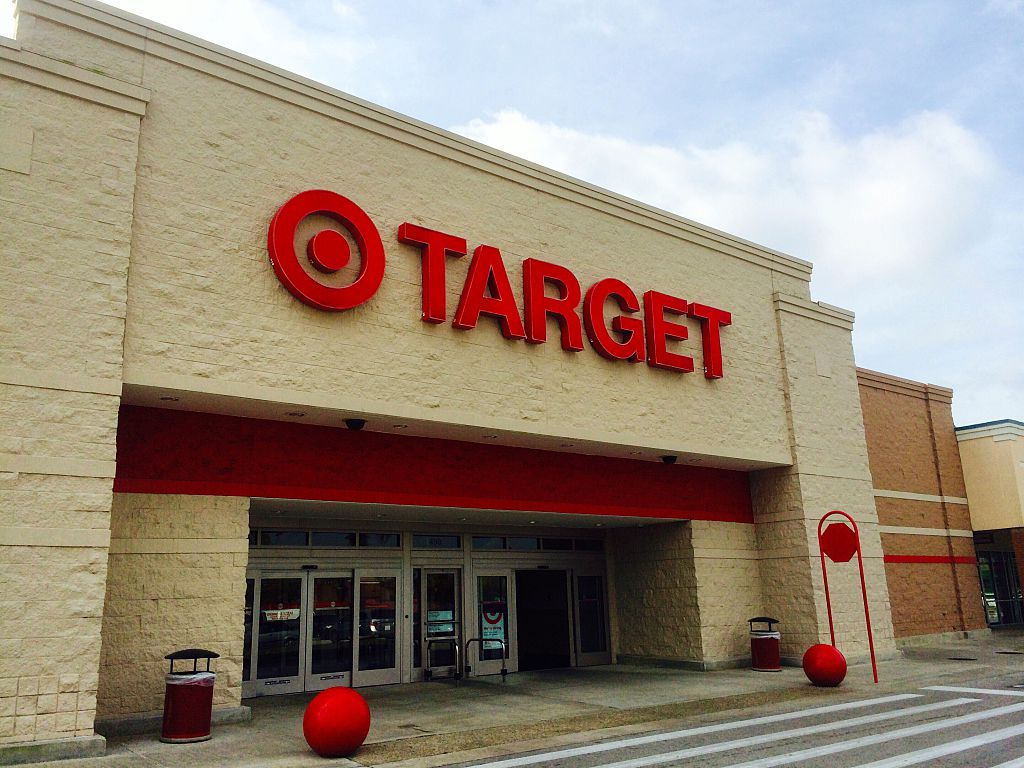 Target Is the Worst S&P 500 Stock After Earnings. Here's Why
Target Is the Worst S&P 500 Stock After Earnings. Here's WhyTarget stock is down big after the retailer missed expectations for its third quarter and slashed its full-year outlook. Here's what Wall Street is saying.
